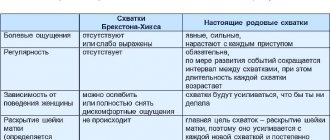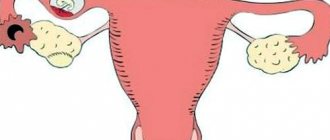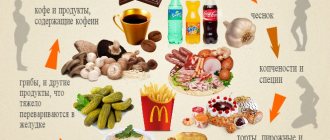How many months is this?
As a rule, most pregnant women believe that they will carry a child for 9 months. However, this is not an entirely correct belief. Doctors count a little differently. If we consider a standard pregnancy, without any deviations, then it will last 280 days.
There is such a thing as an obstetric month. So it is equal to 28 days, that is, it has exactly 4 weeks of 7 days. Therefore, the 37th week is the first week in the ninth obstetric month and the onset of labor at this time is quite normal.
Movement, weight and size of the fetus
At this time, global processes occur in the child’s body:
- The adrenal glands increase in size. They become larger than the kidneys. This is necessary for the production of the hormone. It will reduce the effects of stress that the baby will experience during birth.
- The liver accumulates iron, which is necessary for the normal supply of blood cells to the baby in the first year of life.
- The mucous membranes lining the child's stomach and intestines are completely covered with villous epithelium, thanks to which the child will be able to accept and digest food. The intestines begin to contract more actively.
- The child’s neurons are covered with a protective sheath, which is necessary for normal coordination of movements in the future. This is not a quick process, which will last until birth and throughout the entire first year of the baby’s life.
- The cartilage in the nose and ears becomes harder. At the same time, the bones of the child’s skull remain soft. This is necessary for easier passage of the baby through the birth canal. Two fontanelles are not covered by bone tissue at all.
- At this time, the baby’s facial features have already clearly formed; they are clearly distinguishable. Individual patterns on fingers (fingerprints) also appeared.
- The skin becomes lighter, lanugo disappears. But the eyes and hair have not yet acquired a permanent color.
- The child's lungs are developing rapidly. This process is facilitated by the hormone cortisone, which is produced in increased quantities by the mother’s body. While the lungs are “turned off,” blood will begin to flow to them immediately after the baby is born. There is enough surfactant so that the child can breathe normally.
- The immune and endocrine systems and sensory organs continue to form.
The baby's weight at 37 weeks is 2.8-2.9 kg and it continues to increase every day. The growth of the fetus at this time can reach up to 49 cm, and the circumference of the head and abdomen are equal. Every day there is less and less space left in the uterus, so the woman clearly feels even the slightest movements of the child. This is not surprising, because every week the child gains 1 cm in height alone.
At 37 weeks of intrauterine life, the baby should take its permanent position. In 95% of cases, the baby lies head down, although other options are not excluded.
Sometimes the baby’s movements can give a woman uncomfortable and even painful sensations, because he has grown noticeably and can push with greater force. The expectant mother needs to listen to the baby's movements. He should move at least 10 times every 12 hours, that is, almost every hour. If the child moves much more often or, on the contrary, there are no movements for several hours, then you should definitely consult a doctor.
Therapy methods
Prenatal bandage-corset
If, during a comprehensive examination, it is determined that the cause of abdominal pain is uterine contractions, most likely, the doctor will not prescribe any drug treatment. At week 37, this is an absolutely natural process that may be a harbinger of impending birth.
If the baby is born at this time, it is considered full term. The baby is already able to breathe on his own, latch on and digest food. The first stool, meconium, has already formed in his intestines. The expectant mother should have no reason to worry.
For particularly intense pain caused by uterine contractions, the doctor may prescribe antispasmodics or painkillers based on paracetamol or ibuprofen. The active substance of these drugs, penetrating the placental barrier, does not have a negative effect on the child’s body.
To relieve pain, a woman can wear a prenatal bandage. Such a device allows you to evenly distribute the load on all joints and ligaments, supporting the enlarged stomach and abdominal muscles.
If any pathology has caused discomfort in the lower abdomen, the woman will be referred to a specialized specialist for further treatment.
In some cases, with abdominal pain, a pregnant woman may be hospitalized in a hospital. There is no point in abandoning such a measure. In case of any complications, only timely qualified assistance from medical staff will help preserve the life and health of the mother and child.
Precursors of labor at 37 weeks of pregnancy
At 37 weeks of pregnancy, labor may begin. First of all, this applies to women who are giving birth not for the first time. Be that as it may, you need to be prepared for the fact that labor can begin at any time.
It is important that relatives know how to behave if a woman goes into labor. You should also take care in advance about the bags that you will need to take with you to the maternity hospital. You should not go far from home, and you should always keep your exchange card and mobile phone at hand.
The following signs may indicate impending birth:
- Abdominal prolapse.
The belly may drop lower, reducing pressure on the chest and making it easier to breathe. However, not every woman has a drooping belly, and this sign may never appear.
The lower the fetus is located, the stronger the painful shootings in the perineum and lower limbs will be. The skin on the abdomen becomes more stretched, which may result in mild itching. To get rid of this problem, you should use a moisturizer.
Some women experience slight inversion of the navel. As a result, a dark line may appear in the center of the abdomen. There is nothing wrong with this, since after childbirth this line will disappear.
Naturally, the pressure on the intestines and bladder increases, which means trips to the toilet become more frequent. The closer the moment of birth, the quieter the child begins to behave.
- Exit of the mucus plug.
The passage of the mucus plug that covers the cervix is another harbinger of labor. It can come out either a few days before the onset of labor or several weeks before it. Again, removing the plug is not a necessary process. The mucus plug is represented by thick, viscous secretions. As a rule, not the whole cork comes out, but part of it. The discharge may be clear, pink, brown, or even streaked with blood.
- Energy boost.
Before labor begins, women often feel a surge of strength and energy. Their mood improves, they have the desire and strength to do various things, as if a “second wind” opens.
- Discharge of water.
The water may break during contractions and before they begin. Be that as it may, if a woman sees liquid discharge flowing down her legs, she must either go to the maternity hospital herself or call an ambulance. Moreover, you should not wait for contractions, since the breaking of water always indicates the onset of labor.
- Loss of body weight, loss of appetite.
During pregnancy, a woman's appetite increases, but a few days before giving birth, it may, on the contrary, decrease. Sometimes, 3-4 days before the birth of a child, women completely refuse to eat, as the desire to eat completely disappears. At the same time, it is possible to reduce body weight by 1-2 kg.
- Diarrhea.
Sometimes the day before giving birth, the stool may become loose. Therefore, when diarrhea occurs against the background of complete health, it is quite natural that a woman will end up in the maternity hospital after a couple of days.
- Drops of colostrum on clothes.
Many women begin to notice small stains on their bra or jacket. If you bring them closer to your face, you can smell the milky smell. These are the first drops of colostrum, which also indicate the imminent birth of a child.
- Abdominal pain, pulling lumbar pain, contractions.
The fact that labor will begin soon will be indicated by nagging pain localized in the lower abdomen. They also involve the lower back and can resemble the painful sensations that a woman experiences before her next period.
However, the most obvious sign of imminent labor is contractions. We are not talking about training contractions of the uterus, not about Braxton-Higgs contractions, which occur without pain, but about real contractions. Therefore, if a woman experiences such sensations, she must go to the maternity hospital.
Braxton Hicks contractions are called false contractions because they do not signal the onset of labor. They can be removed by taking a cold shower or simply changing your body position. Real contractions are characterized by severe pain, and the rest interval between them is constantly decreasing.
Recommendations
To spend the remaining weeks in a good mood and without unnecessary problems, follow the following recommendations:
- Don't worry about your upcoming birth. So many women have already gone through this that doctors have accumulated vast experience in this matter. In addition, if you have a low pain threshold, there are different ways to ease the pain of a woman in labor, which you can talk about with your doctor in advance.
- Be careful when walking. Avoid accidental collisions with passers-by, and in winter, walk carefully so as not to fall.
- Avoid traveling during this period. And when you go for a walk, don’t go too far from home so that you can quickly walk back at any time.
- Be prepared to go to the maternity hospital at any time , so a bag with the necessary things and documents should be in a visible place.
- Try to avoid stressful situations , and to do this, find ways to calmly spend time and relax. Listen to music, sing, read. Ask your loved ones to help you with household chores if they are able to do so.
- Ensure yourself a good night's sleep , despite the fact that insomnia may be overwhelming you lately. Avoid late meals, ventilate your bedroom, and take a walk in the evening. Before going to bed, ask your husband to give you a light back massage, listen to relaxing music. Don't deprive yourself of the opportunity to get enough sleep, because soon you will have sleepless nights.
Tightening or pain in the stomach at 37 weeks of pregnancy
The belly may drop at 37 weeks of pregnancy, a week earlier or a week later. If this does not happen, then do not worry. Sometimes the stomach does not drop until childbirth and this is a variant of the norm.
If your belly is drooping, this does not mean that labor should begin in the next few hours. It is quite possible that the woman will carry the child for another 1-2 weeks. However, it will become much easier for her to breathe.
Along with easier breathing comes other difficulties. Thus, pain in the lower abdomen may intensify. If the pain moves to the lower back and is cramping in nature, this may indicate the onset of labor.
What's happening to the stomach?
The size of the abdomen increases greatly at this time, and it can be difficult for a woman to even move with such a load. Problems also arise when choosing the most comfortable body position during a night's rest. The skin on the abdomen is very tight, dry and may itch.
The navel becomes flattened and sometimes even turns outward. There is no need to worry about such an unaesthetic appearance of the navel; after childbirth everything will return to normal.
At 38 weeks, many women notice that their belly has dropped down. This is a variant of the norm. The baby is simply preparing to be born, and his head is pressed closer to the pelvic floor.
Pain at 37 weeks of pregnancy
The nagging pain that occurs at 37 weeks of pregnancy may be due to the fact that the woman’s stomach has dropped and labor will soon begin.
There may also be pain in the sacrum, lower extremities, spine, and back. They are explained by the fact that the woman’s body weight has increased significantly, and the uterus has become much larger in size. To reduce discomfort in your legs and back, you need to rest as much as possible; it is good to place a bolster or pillow under your feet at this time. A prenatal bandage helps relieve stress from the spine.
Pain may also appear in the pubic area, in the pelvis. They occur due to divergence of the pelvic bones. After all, a woman’s ovaries and placenta produce more of the hormone relaxin, and the baby itself puts pressure on the fundus of the uterus. The fewer days left until the baby is born, the more intense the pain in the lower abdomen can be.
Risk factors
One of the risk factors at 36–37 weeks of pregnancy is group B streptococcus. This is a bacterium that can settle in the vagina or area around the rectum. Group B streptococcus occurs in almost 35% of healthy adults. But if its colonies are present in a pregnant woman, the child may become infected during childbirth. And infected newborns need serious antibiotic treatment and close monitoring in the hospital because group B streptococcus can cause dangerous complications in babies, such as meningitis, pneumonia and blood poisoning. If you test positive for this bacterium, your doctor will likely prescribe antibiotics before and during labor. This measure will prevent transmission of the infection to the baby.
Childbirth at 37 weeks of pregnancy no longer poses a serious danger. If you have cramping pain in the abdomen and lower back, or early loss of amniotic fluid, you should call an ambulance. Sometimes a woman even needs premature birth - for example, if she is diagnosed with:
- Fetal hypoxia;
- Infection;
- Placental abruption;
- Entwining the baby with the umbilical cord.
In these cases, the method of delivery is chosen by the attending physician.
Discharge at 37 weeks of pregnancy
Don't panic if you see traces of discharge on your underwear - this is normal. They may also contain mucus, which makes the discharge stretchy. This way the mucus plug comes off. The discharge often turns brown, whitish or pink. Sometimes the plug comes out completely. In this case, it looks like a lump consisting of milk jelly or a silicone formation. It is difficult to confuse a mucus plug with something else. In terms of volume, it can fit in two tablespoons; often such a lump contains bloody threads. If a woman’s mucus plug has completely come out, then there is no doubt that labor will begin very soon.
Greenish, yellowish or dark brown discharge, mucus with foam or lumps resembling cottage cheese are not normal. If such discharge appears, you should go to see a doctor as soon as possible. It is possible that some kind of infection has occurred, which must be gotten rid of before the baby is born. After all, he can become infected with almost any disease while he passes through the birth canal.
If a woman detects bloody discharge, then it is necessary to call an ambulance as quickly as possible. Blood very often indicates placental abruption. This is a very dangerous condition that threatens the life of the child.
When water breaks out, you should also not hesitate to call a medical team. It is impossible not to notice them, as streams will flow down your legs. They indicate the onset of labor. Sometimes amniotic fluid does not come out all at once, but in portions. This indicates a violation of the integrity of the fetal membrane. If such a situation arises, it is also necessary to consult a doctor.
Alarming symptoms
If a woman has a tight stomach, then she needs to rest and relax. Physiological pain associated with fatigue and advanced pregnancy should go away on its own or improve.
But sometimes a woman does not feel changes even at rest. It is necessary to visit an antenatal clinic as soon as possible if the pain intensity increases and the following symptoms are present:
- bloody discharge;
- copious clear discharge (amniotic fluid);
- green, yellow, mucous, foamy discharge;
- darkening of the navel and the skin around it;
- increase in body temperature;
- chills;
- vomiting, nausea.
Important! All these signs may indicate placental abruption, food poisoning, or infection of the body. If the navel darkens, it can be assumed that the child is developing a lack of oxygen and is entangled in the umbilical cord.
Doing an ultrasound
A woman at 37 weeks should visit a gynecologist every 7 days. At this time, the doctor monitors the body’s preparation for childbirth, may examine the cervix, and always listens to the baby’s heartbeat.
As a rule, the woman has already undergone a planned ultrasound, which is the third one. However, sometimes another ultrasound examination is required, for example, when there is a need to clarify the position of the baby in the uterus. Sometimes he does not fall head down, but turns his back or side. In this case, the question of performing a caesarean section may arise.
During an ultrasound, the doctor assesses the size of the fetus, the condition and amount of amniotic fluid and compares them with the norm. At the same time, it is necessary to clarify the maturity of the placenta, the condition of the umbilical cord, uterus and cervix.
At this time, a woman can study as much information as possible on breastfeeding; it is impossible to find any artificial nutrition that could replace mother’s milk. It contains antibodies and other unique components that are essential for a growing body. It is also worth mastering the subtleties of caring for a baby, because he will be born very soon.
We take tests, undergo examinations
If there are no abnormalities during pregnancy, then the woman will need to submit urine for a general analysis. The doctor will also measure her blood pressure, measure the height of the fundus of the uterus and the volume of the abdomen.
The height of the uterine fundus is 37 cm. If this figure is exceeded, the doctor may suspect polyhydramnios. This often becomes a reason for sending a woman to a maternity hospital. This will allow doctors to constantly monitor the situation. If the height of the uterine fundus has decreased, it means that the baby will soon be born, as this indicates its prolapse.
As for protein in the urine, normally it should be absent there. If protein appears in the urine shortly before childbirth, this is an alarming signal. It is possible that a woman is developing preeclampsia. This is one of the severe forms of toxicosis that develops in late pregnancy. Other signs of preeclampsia are: surges in blood pressure, swelling, and weight gain. At this time, the child will suffer from lack of nutrition and oxygen starvation. At the same time, the load on all organ systems of a woman increases.
What complications can occur at 37 weeks of pregnancy?
Your baby's bones and nails continue to grow, which requires calcium. It is also necessary for the pregnant woman herself to prevent the development of hemorrhoids and varicose veins.
Equally important is the regular supply of vitamin D to the body, which will prevent the development of rickets in a child.
In addition, a woman should monitor her weight. Rapid gains are dangerous. So, if the fetus is large, this increases the risk of injury to the child during passage through the birth canal. This threatens a woman with numerous breaks.
The main danger in late pregnancy remains eclampsia. It is the leading cause of death among pregnant women worldwide. This also applies to developed countries. Eclampsia does not occur instantly; it is always preceded by preeclampsia. It is important not to ignore the first signs of impending toxicosis.
If the child is in a breech position, then at this stage it will no longer be possible to change his body position. In this case, the woman will be hospitalized until labor begins, after which the issue of a caesarean section will be decided.
Sex
Having sex at 38 weeks of pregnancy is a rather controversial point. Of course, intimate life will bring pleasure to a woman, and the level of the joy hormone in the body will increase. Sex also increases blood circulation in the pelvis, which means the placenta will be enriched with oxygen.
However, at this late stage the uterus becomes very sensitive, and the birth canal opens slightly. Therefore, during sex, you can damage the cervix and cause minor bleeding.
Having sex at 38 weeks of pregnancy can result in the onset of labor. This is a natural way to induce labor, but you can resort to it only after consulting a doctor.
What is possible and what is not?
It is very important that a woman does not experience serious physical activity during the 37th week of pregnancy. If you feel tired, you need to put everything aside and rest. There is no need to be embarrassed to ask for help from loved ones.
- Nutrition.
It is important not to overeat, so portions should be small, and the number of meals per day should not exceed seven times. If your appetite disappears, then you need to switch to light but nutritious meals. You should not include foods on your menu that may cause allergic reactions. For example, these are citrus fruits or chocolate. Smoked, salty and spicy dishes should be removed from the menu. In this case, the woman needs to drink enough fluids. Non-carbonated mineral water, compote, tea, fruit juice are suitable drinks. It is best to avoid store-bought juices, as their sugar content is very high.
- Vitamins.
From the very beginning of pregnancy, a woman should receive vitamins. You should not give them up at a later date and even after childbirth. However, the doctor must choose the optimal drug.
- Sex.
Doctors say that during a normal pregnancy, intimate life can be maintained until childbirth. Studies have been conducted that have established that semen contains a substance that prepares the cervix for dilatation. However, after the mucus plug comes out, intimate life should be abandoned, as the risk of infection to the fetus increases.
- Sport.
At the 37th week of pregnancy, you should stop exercising, although, under the supervision of an instructor, you can do light exercises to maintain muscle tone. You also need to take walks in the fresh air, but at a slow pace. It is allowed to do breathing exercises.
- Taking medications, undergoing procedures
. Without the doctor's permission, you cannot take any medications or perform any medical procedures. Any therapy is prescribed by a doctor.
What can affect the fetus?
At 37 weeks of pregnancy, the baby continues to sleep a lot. At this time, the child’s sleep has not only a fast phase, but also a slow phase. During the fast phase, his eyeballs move and his fingers may twitch slightly. During the slow phase, the baby completely relaxes. It accounts for about 40-60% of the total sleep duration.
While awake, he sucks his fingers and can touch and play with the umbilical cord. The child distinguishes the voice of mother and father well, reacts to the inclusion of his favorite music, and may begin to move more actively during a loud conversation. A woman in late pregnancy is not recommended to visit places with high noise levels.
You should also not often be in enclosed spaces where large numbers of people gather. Indeed, in this case, the risk of catching ARVI or acute respiratory infections increases, which can negatively affect the condition of the fetus and the woman herself.
It is important that the expectant mother eats well. Substances with a strong odor or addictive products can have a negative impact on a child's health. Therefore, it is so important to completely eliminate the entry of alcohol, drugs and tobacco smoke into a woman’s body.
Answers to questions about 37 weeks of pregnancy
- At 37 weeks of pregnancy, the stomach often feels tight. This is fine? Could this indicate that labor is about to begin?
If false contractions occur more frequently and become more painful, this may indicate that labor is approaching. However, if this is the first birth, and the belly has not dropped and the mucus plug has not come off, then it is quite possible that the baby will be born only after 1-2 weeks.
- First pregnancy, 37 weeks. The legs, lower back and pelvic bones hurt severely. What is this?
These are completely normal feelings. Pain in the lower extremities occurs due to compression of blood vessels and nerves by the uterus. Such pain is not dangerous for either the woman or the child. To alleviate the condition, you need to rest more, massage your feet, and wear comfortable shoes. Pain in the lower back and pelvis most often indicates prolapse of the fetus, which leads to separation of the pelvic bones.
- My weight increased by 17 kg at 37 weeks. I don’t eat much, but I think I’m still overweight. Is it so?
The weight gain, which is 17 kg, is a slight excess of the norm, but it is not critical. It is important to limit the consumption of sweets and flour products before giving birth. The menu should contain more vegetables, fruits, dairy and fermented milk products. It is important that excess weight is not formed due to edema. If it accumulated gradually, then there should be no cause for concern. If your weight increases sharply, for example, within 7 days, then you should definitely go to see a specialist.
Author of the article:
Lapikova Valentina Vladimirovna | Gynecologist, reproductive specialist
Education: Diploma in Obstetrics and Gynecology received from the Russian State Medical University of the Federal Agency for Health and Social Development (2010). In 2013, she completed her postgraduate studies at NIMU named after. N.I. Pirogova.
Our authors











